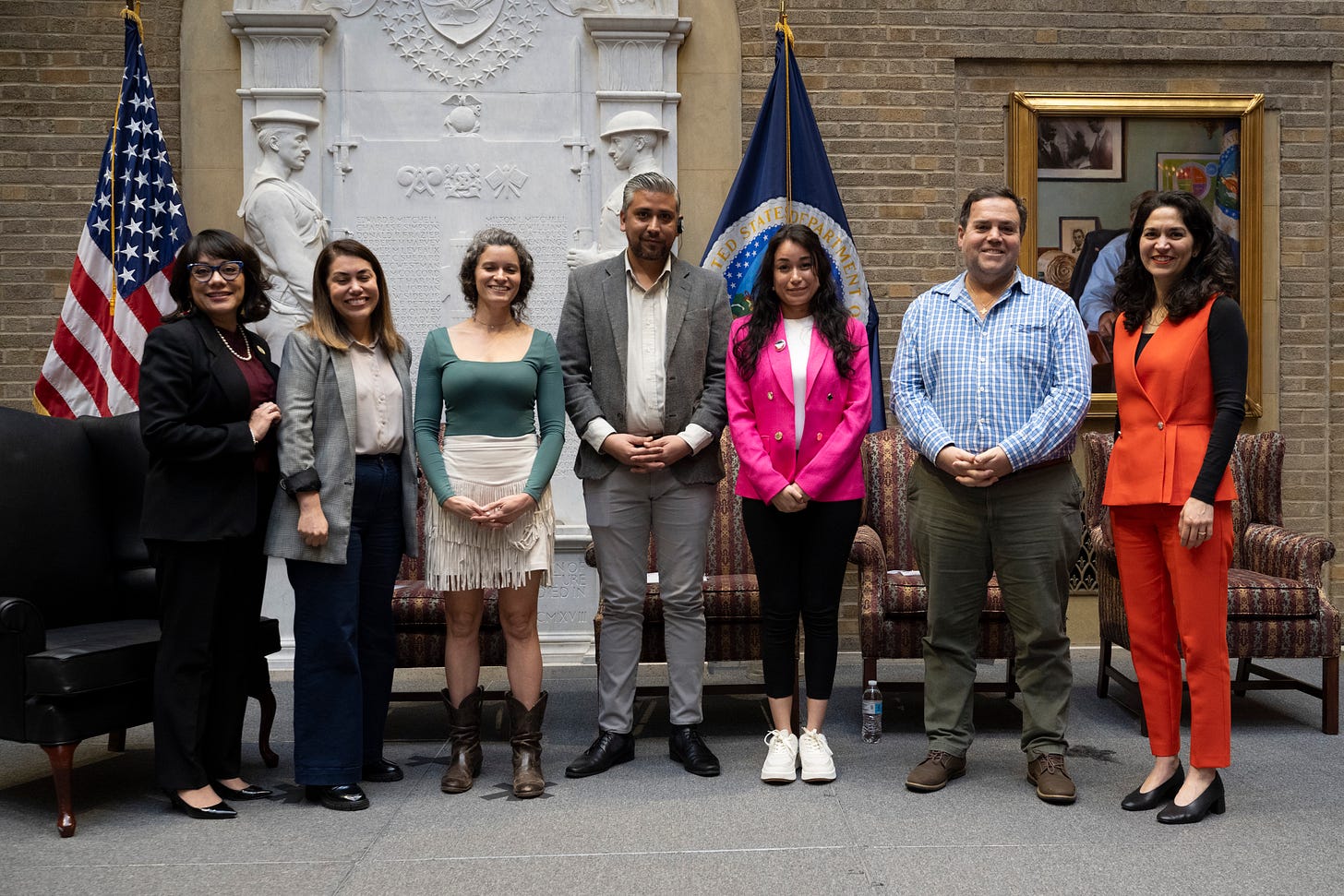(GCV Note: The original version of this article referred to someone as “Afghan-Jordani.” It is now listed as Afghan/Jordanian.)
Some of my earliest memories are of providing hospitality to immigrant workers, primarily refugees fleeing cartel violence. My family’s story mirrors that of John Steinbeck’s “Grapes of Wrath,” so my brother and I grew up hearing countless stories of the hardships migrant workers face. My parents often quoted the Bible, especially Exodus, reminding us that we are all “strangers in a strange land” and Hebrews’ call to show hospitality to strangers.
Just three generations ago, my family lived in a chicken coop while working the fields, later moving into a sod house until they saved enough to buy land along the Washita River. There, they built a homestead with pecan groves, bee hives, an aviary, and farmland. The women in my family taught literacy courses to those in third-world countries via the mail (My retired parents still have 5-6 online students each week) and earned “milk and eggs” money by sewing and selling fruit. Also, having Sioux cousins, I lean towards “There are no illegal people on stolen land” but still support comprehensive screening of those we welcome into the fold.
As a child, these stories stayed with me as I carried trays of lemonade to our workers resting in the shade. They were always kind, calling me “mija” and “princesa,” and sharing meals with us as honorary members of our family. Papers didn’t matter to us—they were part of the community and worked hard alongside my father. We paid them in cash, knowing they paid taxes without receiving government support. Often, they were the sole wage earners for their families here and abroad, and they lived with a constant target on their backs.
In the early 1990s, this fragile sense of security vanished with the rise of INS raids. Overnight, Latino and Hispanic families disappeared. My mother, an incredibly gifted special education teacher (and former property manager), came to work one morning to find half her class gone. Families were torn apart, children were taken from their parents, and neighbors lived in fear of being reported. In response, our community came together. In the horror came comfort and solidarity. Anytime “La Migra” appeared, we sent warnings, played the “shell game,” and sheltered those most at risk. My best friend and I spent countless hours walking families through government paperwork and calling shelters to keep them safe.
My friend did not even have a bedroom-she slept in the living room of their trailer home. When I slept over, we were often awakened at all hours by those seeking shelter. Her parents would always wake up and serve coffee, and Abuelita and their extended families would welcome these desperate people into their own homes. Now, their three children have Master’s degrees and are incredibly active in their community, thanks to the efforts of their immigrant parents.
Even in high school, the uncertainty persisted. My two best friends were Mexican-American, and when we crossed the border to visit their families, I sat up front to ensure smooth passage. Once, we were shaken down for bribes, but after explaining my work rebuilding orphanages in Torreón, the guards returned the money to my honorary parents and apologized. These experiences earned me the nickname “Tía Gringa,” and I attained proficiency in Spanish, which enabled me to become an Executive Foreign Language Tutor at the same time as the Assistant Executive Director of an excellent company operated by a close-knit Punjabi family who welcomed me in.
After high school, I became close friends with a Hmong girl whose family were refugees from Laos. Her father risked his life aiding U.S. intelligence and protecting fallen American airmen until they could be rescued. They initially spent time in Germany, then rebuilt their lives here under the Refugee Act of 1980. I helped them navigate government aid and earned the nickname “red-headed Teufelkatze” (Hellcat). As her father said, “TK cuts through bureaucratic red tape with a machete!” He taught me that I could be a weapon with my words and my influence.
In nursing school, I was blessed to have a lab-mate named Tariq, an Afghan/Jordanian refugee. He did me the honor of inviting me to study in his family home, a multi-generational family compound. His family’s Pashtunwali/hospitality was incredible. I had already read and studied the Koran, but they educated me on Muslim family life and Middle-Eastern culture and taught me some Arabic and Pashto. They respected my beliefs as a Judeo-Christian. His mother and sister taught me to make baklava while his father cooked kinafa over an open fire. They gently teased Tariq when they discovered I could outshoot them with a rifle and smoked hookah with me while we discussed philosophy and poetry by Rumi. Tariq and I worked together over the years to bring others of his family to America, helped him locate cash properties to buy, and lent him tools/ experience to make them safe, comfortable homes.
My life’s work has been in education, skilled trades, affordable housing, and helping immigrants and refugees. Over the years, I’ve built relationships with colleagues across many organizations and worked even within our own ranks to do what is right- to support equitable access to education, take a stand against bigoted internal policies and practices that adversely affect our society's most vulnerable, and educate/practice Fair Housing policies.
Together, we celebrate victories against entrenched bureaucracies like the VA, systemic barriers, and immigrant/minority-targeting hate at our properties. Outside of work, we volunteer with nonviolent protests, organize anonymous grocery deliveries showing up outside of the apartments of those truly in need, and work our fingers to the bone fighting the good fight–ridiculous amounts of additional paperwork required to solicit aid from resettlement organizations, coordinate with VASH/HUD caseworkers, VA caseworkers, and Housing Choice Voucher caseworkers to make sure our people are safely and affordably housed. We also share resources/contact info for various independent aid organizations.
Family is not only blood; it is those for whom you would shed blood. And as Americans, we need to broaden our definitions of who constitutes our family–those “huddled masses longing to breathe free.”
Myth: Immigrants/refugees cause higher crime rates. Data.
Truth: Undocumented immigrants paid 96.7 billion in taxes in 2022 alone
Acta non verba,
Bessie





You are an amazing blessing to this world and this country. Thank you and your peers for the wonderful and heartfelt work that you do.
Loved this piece. It is interesting that you associate things getting worse with 1990s INS raids. I admit I believed the creation of ICE in place of INS is when things really went to hell. Suddenly every foreigner was a possible terrorist. It's even reflected in the names, one about helping immigrants to become citizens and the other focusing on enforcement of immigration laws. Thank you for writing this piece. I will never understand why it is so difficult for so many Americans to put a human face on refugees and asylum seekers, and migrant workers. We can have secure borders and still be humane. Keep fighting the good fight. I encourage anyone wanting to help to see if their city has a chapter of Hello Neighbor.